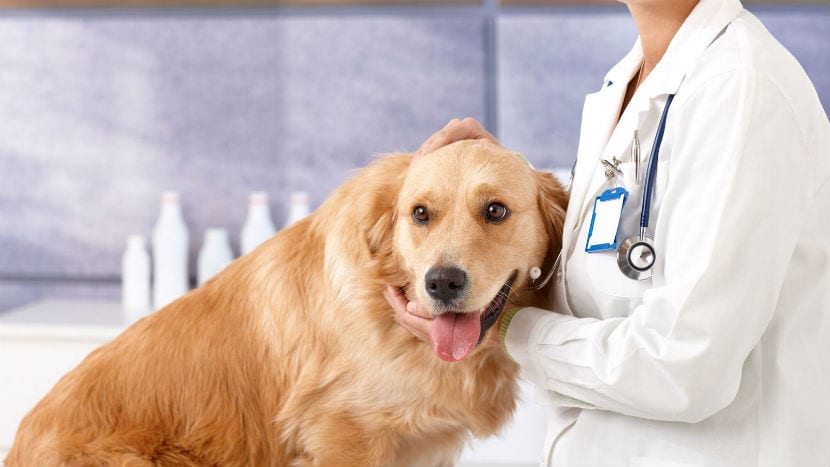
La leishmaniasis or leishmaniasis is a disease that damages the immune system of the dog and that it is transmitted by a parasite called Leishmania. In turn, this parasite enters your body through the bite of a mosquito infected by it, the sandfly. It can affect dogs of any breed, age or size, and carries serious symptoms for their body.
Types of leishmaniasis
It is an infectious disease that can be of two types:
- Cutaneous leishmaniasis: causes hair loss in various areas of the body, such as around the eyes, nose and ears. Also the appearance of ulcers on the skin, a disproportionate growth of the nails and the formation of nodules.
- Visceral leishmaniosis: It causes severe weight loss, kidney problems, fever, and swelling in the abdomen. In addition, it affects internal organs such as the spleen, liver, and bone marrow.
Main symptoms
They do not have to occur all and their appearance depends on the state of the disease. But, in general terms, we can name the following:
- Diarrhea
- Vomiting
- Fever
- Loss of appetite
- Alopecia
- Brittle nails
- Joint pain
- Joint swelling
- Eczemas

Treatment and care
La leishmaniasis has no cure, but we can alleviate your symptoms with the appropriate veterinary treatment. It is based on drugs such as Meglumine Antimonate, Miltefosine and Allopurinol, although it depends on each specific case.
However, we can complete this treatment with other care that will be of great help to our dog.
- A special diet. Dogs affected with this disease should eat a diet rich in antioxidants and omega 3 and omega 6 fatty acids. It is also important that they do not consume a high level of phosphorus and that we provide them with easily digestible proteins. There are special feeds for this; the vet will know how to recommend the right one.
- Good hydration. Sometimes this disease causes the dog not to drink enough. We must encourage the animal to hydrate well, as this helps the organs function better.
- Moderate exercise Daily walks help dogs affected with leishmaniasis to strengthen their muscles and bones, and improve their heart rate. But we should never force them to do physical activity when they are tired or in pain.
- A specific shampoo. This disorder strongly affects the skin, so when bathing the animal we will have to do it with a specific shampoo for dogs with leishmaniasis.
- Comfort and relaxation. We must provide the animal with maximum comfort inside the house: a soft bed in a warm and little-traveled area, stairs or ramps so that it can get up and down from high places, etc. Everything necessary for the animal to feel comfortable and relaxed.
- Veterinary visits. This disease requires constant veterinary treatment, and therefore, frequent check-ups. This is essential for our dog to have a great quality of life.

How to prevent disease
Although there is no method that protects our dog 100%, we can greatly reduce the chances of being attacked by the mosquito by following some guidelines:
- Use repellants. They are not infallible, but they can reduce the chances of a sandfly attack by more than 80%. We are referring to antiparasitic collars, pipettes and tablets. We should never administer these products on our own, but ask the veterinarian beforehand.
- Install mosquito nets. The mosquito nets prevent this insect from sneaking into our house, as long as the holes in the mesh do not exceed two millimeters, which is the size of the sandfly.
- Let the dog sleep at home. Dogs that spend the night outside are much more likely to be infected than those that can stay indoors. It must be taken into account that the hours of greatest activity of this mosquito are dusk and dawn.
- Do the annual analysis. Currently most veterinary clinics carry out an annual blood test on all dogs whose owners wish to do so. They do it with the purpose of finding out if the animal suffers from leishmaniasis and start treating it as soon as possible.